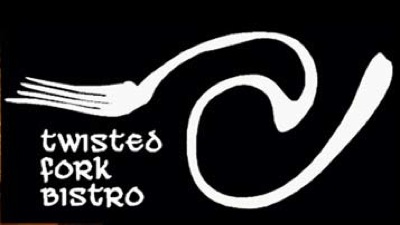
 Not only because of the approach of Thanksgiving and its mandate (as practiced in my family) to reflect on some form of blessing, preferably neglected forms, but also because I'm, well, usually fork-ready do I think about: The Mostly Wonderful Story Status of Universes: a Limited Fork Theory observation of an amazing interactive impulse so far unstoppable, unflappable, unrelenting, undeniable
Not only because of the approach of Thanksgiving and its mandate (as practiced in my family) to reflect on some form of blessing, preferably neglected forms, but also because I'm, well, usually fork-ready do I think about: The Mostly Wonderful Story Status of Universes: a Limited Fork Theory observation of an amazing interactive impulse so far unstoppable, unflappable, unrelenting, undeniable (images of fork-ready forkergirl by Ansted of kna'Knox)
fork-ready: prepared through a bifurcating, connecting, disconnecting, and reconnecting (on some scale, in some location, for some duration of time) tine system (perhaps even a single tine that in its looping and twisting and coiling and curling and thinning and thickening and spiraling and loss and gain or color, etc. seems a mass of many tines instead of an endless single) —even though the many, if that is the case, may have sprouted from a single origin: connected at/to the root system, perhaps forming the root system by bifurcating from an original point, some sort of bursting in every direction, in fact bursting and simultaneously establishing direction, space, time, the remarkable;
prepared for the reaching out, the reaching toward and the reaching for that I like assigning to roots and branches as indication of compulsion to seek something with which to connect, as indication of ability to seek something with which to connect, as indication of need to seek something with which to connect —the very definition of fork. Dare I say as revelatory of design? made to reach, seek, connect? A self-designed existence for which existence is existence's engine? —a whole lot of power that came from where? why? how? Or maybe it was already always there: unbounded, infinite location in which sleepy stuff drifted around, bumping into each other and aggregating into something more robust, more volatile, and then poof! a cycle of existence ignites, spreads, is still spreading, existence riding shockwaves of its own existence —till one day it fizzles? stuff goes back to sleep, drifts, collides, aggregates, explodes.
My favorite branch is the one posted here, a digital copy of what I photographed in 2006 on Miller Road, a branch well-involved with reaching, curving, heading for spiral, partial lung outline, almost half a valentine, more heart when the branch mirrors into valentine fulfillment, the eye/mind/digital manipulation extending/fixing the curve for love of that.
View Larger Map
The branch arced almost completely across the street, from even to odd side. I drove under it twice a week day, as under a wooden arm of rainbow, wooden arch, shrine, colossal matchstick. I had thought to take one of its leaves, without working out how I might climb it, what it would be like to hang from it over moderate residential traffic, or determining whether or not the branch I loved could support my weight plus the added bulk of adoration, but I didn't act soon enough; that branch is gone now, a curl of smoke up and out a chimney (announcing the death by licensed axe-murderer of the wooden Pope of Miller Road) the same year that I photographed it as I approached it in my car. There was no city-wide mourning of the almost-half-heart limited fork branch. No obituary in the print news that soon enough published its own obituary, joining the death of one of the best independent book stores ever, the massive wooden doors transplanted to Shaman Drum from lesser castles.


At ShirtiGator, forks tell parts of their story, and as clones, they tell other parts of their story here. The telling is an unfolding of information; anything that exists exists as information and as the story system of that information.


I join fork theory at a point where a fork already exists, where a forking system is already active: bifurcations in progress, accustomed to unfolding, yet there's room for me within the accommodating system, and room for the forking within my evolving sensibilities. The limited forking system and I adapt to each other, and my identity is reforged: forkergirl emerges.
Love at first awareness of encounter.
I lost the ability to form any contexts that a limited fork did not inform. I terminated old loyalties, even those from which I'd benefitted. The whole fork (within the limits) and nothing but the fork. Live by the fork, for the fork: the tines that bind also blind. I'm lovin' the fastness of the reconfiguration of food: when the tines are bare, turns out that the utensil itself has a taste. Assessments of information are filtered through Limited Fork Theory, connection after connection in an incredible anthology of encounter. In the evidence of encounter, the information of encounter are the stories of encounter. Time is also the story of time. Space is also the story of space. The fork-constant keeps forking; the fork constantly forks. Assessments are therefore made within a limited or compromised context of, as far as Limited Fork Theory knows, fork perpetuity.
Ever since there's been a limited fork system, the fork has been constant, existing in some form on some scale in some location. That it adapts as it receive (and transmits) information (stories); that it is configurable helps it succeed, helps it persist, form after form, iteration after iteration, story after story.
Mysteries of beginning have no consequence that threatens the fork, for solving those mysteries or not solving them does not terminate the fork's existence. All possible beginnings lead to a lead fork, bifurcate into a limited fork, because the fork exists already, is already an interim destination of all genesises. Any speculation, hypothesis, or ultimately proof about genesis must somehow lead to emergence of a limited fork system, a system that only from time to time distresses over a lack definitive reason for its existence —maybe that's why it works so hard to reach for, to reach toward, eventually, everything, collaborating in manufactured purpose.

Seeking connection, making connection, toward a moment in which everything has become temporarily connected with everything, a kind of filling in of those gaps between things, as if once all connected, that tine, that string could be pulled returning stuff to a compact state, perhaps a dense ball becoming increasing more dense the tighter the string is pulled by a gravity of self-embrace into a tiny speck of infinite density, a seed for another cycle of universes as a tendril leaks and the whole thing comes undone, an infinite unraveling until stuff grabs onto stuff and pulls everything together again until another leak. Above, the Ganges as captured in a NASA satellite image bifurcates, flows, connects with (with a little help from forkergirl and their shared ambition) two Twisted Fork Bistro logos, the convergence telling a story of convergence, accommodation, access, connection.


At the top, a bit of silver-plated Ganges captured just after it came out of forkergirl's mouth as the words silver-plated Ganges came out of the mouth that tasted them with teeth, tongue, lips, mind, heart: a moment of giving Thanks.
by JEFFERY RUDELL from npr)
To exist is to be a form of story.
We are immersed in chapters, we contain chapters, and we are chapters.
Some of us experience the poetry of this, are aware of the lovely and tragic poetry of this, burden of metaphor, information able to be expressed as other information, the loveliness and tragedies of configurability, everything is the poetry of this terrible and wondrous, the powerful and humbling intrusion of connection, the collaborative nature of all things telling a story against singular possession and individual achievement, a story of embrace that as it widens on all scales in all locations during all moments of time snares everything (at least once), possesses all (on some scale in some location for some duration of time), achieves.
 The promotional video for
The promotional video for